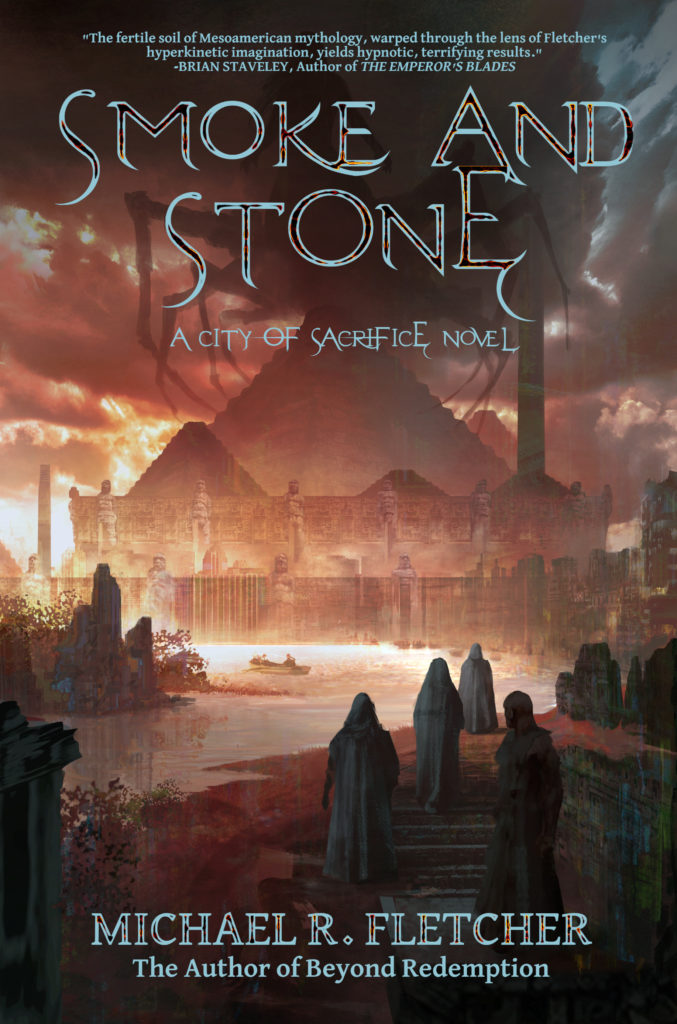Smoke and Stone is a dark, dark, dark start into what promises to be a top-quality series featuring some of the darkest magic ever in the subgenre.
The gods are at war. They cannot enter the mortal world, at least not yet. But the seeds of discord planted thousands of years ago have begun to take root. Bastion is the last Living City, a society so inherently evil, so stratified. The evil is germinating fast, as the ancient deities slowly awake to resume their never-ending war to head the Divine Pantheon. The protagonists, a priest seeking worldly accomplishment, and a lowly street Dirt gifted with sorcerous powers seeking a way to better the pathetic lives of her friends, are both caught in the machinations of evil gods, setting into motion a cataclysm that will sweep into the very heart of Bastion with bloody, evil menace.
It’s very finely written this book. With plenty of dark, dark magic. The naming system is interesting, as is the magic system itself, both of which seem to me rather very African. Some of the names: Yejide, Khadija, Ibrahim, Nuru….
The standout feature is the magic system, which is as dark as dark ever goes. It’s not the bright blinding lights and a lot of waving of hands and fancy chants. This one involves plenty of trance-inducing narcotics, ancient evil daggers imbued with the souls of generations of individuals murdered/sacrificed in the worship of powerful deities, serious ritualistic stuff, certainly not for the faint of heart.
If you’re looking for some lovey-dovey adventure with knights and castles and kingdoms to be conquered, then stay away from this. But if you, like me have a taste for the inherently dark, then I advise you to start this journey. It will most certainly be worth it at the end.
P.S- Was quite nice seeing an old acquaintance Petros Triantafyllou mentioned in the acknowledgments. Cheers to that.























